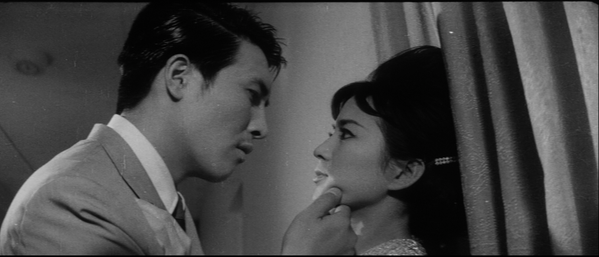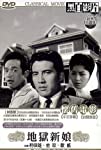Eye For Film >> Movies >> The Bride Who Has Returned From Hell (1965) Film Review
The Bride Who Has Returned From Hell
Reviewed by: Jennie Kermode

Over the last decade we've seen East Asian cinema develop quite an appetite for the Gothic, spinning out its own versions of classic tales and drawing on the visual and psychological tropes of the genre to create new ones. Tsin Chi's 1965 offering, loving restored and screening as part of the Taiwan Film Festival Edinburgh, is a reminder that this has older roots than one might expect. Based on bestseller The Mistress Of Mellyn by Eleanor Hibbert (writing as Victoria Holt), this is mostly set in daylight with self-consciously modern costumes and interiors, yet it's still driven by that heady old mixture of premature death, dark family secrets, romance and betrayal.
Bai Ruimei (Jin Mei) is our heroine, chosen for the job of governess to a bereaved man's young daughter because she resembles the child's mother and it's thought that this might be a source of comfort. In fact the resemblance is there because she is the dead woman's sister, but she intends to keep that a secret while investigating her death. Having reportedly been in the company of another man when she died, the dead woman is a source of shame as well as heartbreak to her widower, Wang Yiming (Ke Junxiong), and this has led to the breakdown of his relationship with the child. Ruimei immediately goes about trying to repair this with the strong will of a classic Gothic heroine - but just like them, she's about to discover that her life is in danger.
There's a lot going on here in an extended household that's full of activity. Ruimei soon finds herself romantically entangled, with more than one suitor. She also develops a close bond with the child, who has a habit of slinking around corners like a ghost and eavesdropping in adult conversations in a manner that might not be good for her. Despite the fact that her job is a cover, Ruimei is determined to be professional about it, and asserts herself in a way that raises eyebrows - this may have been the Sixties but in Taiwan as elsewhere, a middle class woman was not really expected to work, let alone take on men in that capacity. Meanwhile, minor characters keep meeting with suspicious, fatal accidents, and everybody is on edge.
Despite these tensions, there's a lot of humour in this film. Some of it really doesn't translate for foreign audiences, based as it is around puns, but anyone can see the playfulness in the relationships between lower class characters. Some of the humour is rooted in the language of film, with shot choices often playing out like a pastiche of the hip European cinematic and televisual fare of the time. The sudden use of the James Bond theme tune in the final act is a bold, perhaps ill-advised choice that disrupts the mood completely. There is also some inadvertent humour stemming from the intensity of the melodrama in the first half of the film, when the music swells at the flimsiest excuse and every utterance that escapes Rumei's lips is proceeded by an urgent little intake of breath.
Whilst there are issues with the plot - this is one of those mysteries that pretends to outwit its audience by denying them a vital piece of the puzzle for much of the running time, so they can't figure it out for themselves - Jin makes a strong lead and the romance is nicely developed, feeling like something organic despite the short time in which it emerges. Tsin shows himself capable of recreating borrowed visual elements with at least as much verve as the original, and the excellent restoration work has brought his dramatic contrasts back to life. Overall this is an energetic, entertaining film, so one can't object too much when it's also a bit silly. Tsin can deliver a dramatic punch when he needs to, and we return to Gothic tradition for the finale.
Reviewed on: 16 Sep 2020
















